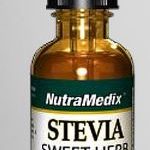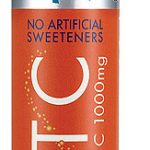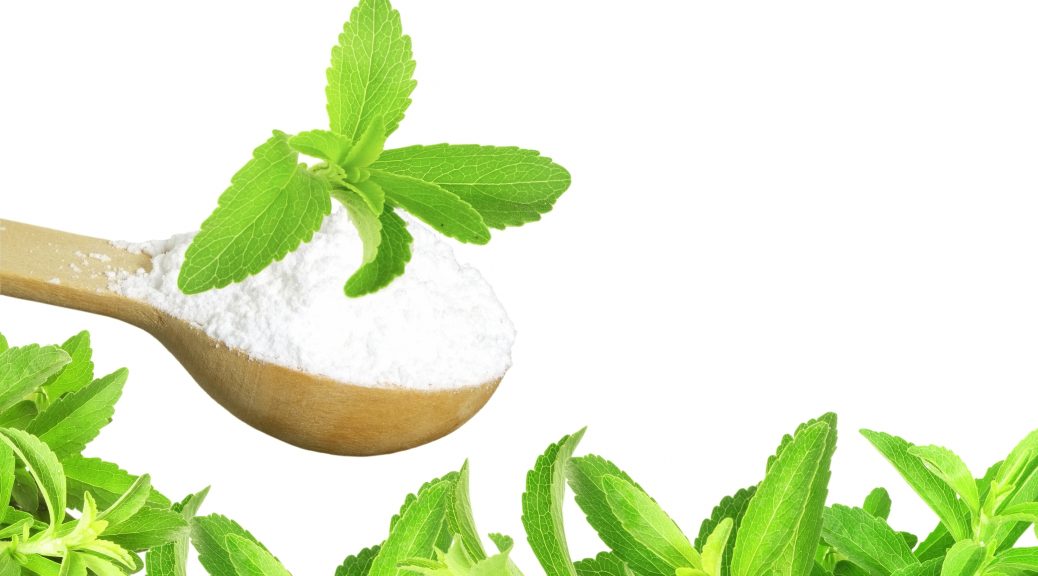You may not believe it, but it’s true; there’s a sweetener that, despite being hundreds of times sweeter than table sugar, can do your body a great deal of good. It may sound bizarre, but why is that? We’re conditioned to think that sweet foods are bad for us because so many of them contain large amounts of non-naturally-occurring and calorific sugar – but, yes, it’s because stevia is entirely naturally occurring that it’s so full of goodness for anyone who might try to work it into their diet.
So intensely sweet-tasting, it’s believed to be 200-300 times sweeter than table sugar1, stevia’s reputation as a sweetening ingredient in cooking and general food preparation is actually well established; indeed, it’s been used in drinks like tea going back to the 16th Century. Originally native to South American countries like Brazil and Paraguay, but now also grown throughout the South East Asian powers China and Japan, it’s becoming increasingly recognised for its non-nutritive (non-calorific) properties and, thus, as a healthy alternative to added sugar (sucrose)2.
In fact, in recent years, food products that contain stevia have enjoyed a 58 percent increase in sales3 – and that huge leap may be explained by the fact it’s now looked on not just as a great-tasting alternative to sugar, but also as a food ingredient that’s brimming with health benefits.
What exactly is stevia?
Specifically then, Stevia rebaundiana Bertoni belongs to the sunflower family, being a bushy shrub that was originally native to both North and South America and boasting 150 separate species. To extract the naturally-occurring sugar-based qualities of the stevia plant (what, thus, becomes known as ‘stevia’ when it’s used as a food ingredient or supplementary extract), the glycosides within the plant’s leaves – molecules that contain sugar bonded with other chemicals – are extracted and purified through a longwinded process, following the harvesting of the leaves themselves.
In all, stevia leaves contain eight of these glycosides: stevioside; rebaudiosides A, C, D, E and F; steviolbioside and dulcoside A – note; the first and second of these, stevioside and rebaudioside (reb A), are the most plentiful in terms of natural goodness4.
Stevia health benefits
So, what of stevia’s natural goodness? Well, once correctly and successfully extracted from the source plant, it’s health benefits are, indeed, many. It should be pointed out, though, that although it’s referred to as non-calorific, stevia isn’t absolutely calorie-free, yet it comprises far in a way fewer than sucrose; enough, for sure, to be referred to as containing practically none. And this very low calorie count ensures that, especially in contrast to sucrose, stevia can operate as a sweetener that not only won’t worsen diabetes and weight gain, but aid in helping to control and combat them, respectively. In more detail then, the possible health benefits of stevia include:
- Weight management – according to US Government figures, consuming added sugars alone accounts for around 16 percent of the total calorie count in Americans’ diet and, unsurprisingly, studies have linked this directly to weight gain5 and (if sucrose is consumed excessively) obesity6, as well as unhealthy blood glucose levels and cardiovascular disease), so switching to many of the food products on the market today that comprise naturally-sourced stevia – everything from snack bars to salad dressings – ensure that people (not least children, who are so attracted to sweet foods and drinks) can transition away from sucrose and enjoy a lower sugar diet
- Blood pressure – the results of a study conducted in 2003 suggest that stevia may be able to help reduce blood pressure7, not least thanks to it containing cardiotonic actions, which work to normalise blood pressure and regulate heartbeat; moreover, some stevia glycosides are believed to dilate blood vessels and boost sodium excretion and urine production (it ought to be pointed out, though, that some experts believe more research in this area needs to take place)
- Diabetes – consuming stevia has been shown to have no negative effect on either blood glucose8 or insulin9 response; in fact, type 2 diabetes sufferers have reported that stevia has contributed to significant drops in blood glucose and glucagon response following meals10
- Pancreatic cancer – there is a possibility that, thanks to comprising the antioxidant flavanol kaempferol, stevia may be able to help cut the risk of developing pancreatic cancer; a study having suggested kaempferol may reduce the risk by as much as 23 percent11.
Stevia supplements
Fair dos, for many people, finding, purchasing and blending stevia-derived foods and drinks into their daily diets may not be the easiest thing to do – as noted, stevia is becoming more and more popular, but it’s still far easier for consumers to get their hands on added sugar alternatives… far easier. In which case, while trying to cut down on your sucrose intake, you may try to introduce (or boost) stevia in your diet via these stevia supplements, both of them available through us at The Finchley Clinic:
 NutraMedix Stevia (30ml) – boasting 300 times the sweetness of sugar, this form of stevia is ideal for diabetics, those looking to lose weight and those wanting to reduce their sugar intake; can be used as an alternative to table sugar (four drops the equivalent to a teaspoon).
NutraMedix Stevia (30ml) – boasting 300 times the sweetness of sugar, this form of stevia is ideal for diabetics, those looking to lose weight and those wanting to reduce their sugar intake; can be used as an alternative to table sugar (four drops the equivalent to a teaspoon).
 Fizzy C (Vitamin C) – a fantastic addition to water or any juice should you want a ‘fizzy’ drink, but one free of artificial additives, flavours and sweetening (the sweetening being provided by stevia glycosides).
Fizzy C (Vitamin C) – a fantastic addition to water or any juice should you want a ‘fizzy’ drink, but one free of artificial additives, flavours and sweetening (the sweetening being provided by stevia glycosides).
References
- NHS Choices. ‘Are stevia plant extracts safe?’. https://www.nhs.uk/Livewell/Goodfood/Pages/are-stevia-plant-extracts-safe.aspx. Last review date: 13/4/2016.
- National Agricultural Library. ‘Nutritive and Nonnutritive Sweetener Resources’. United States Department of Agriculture. https://www.nal.usda.gov/fnic/nutritive-and-nonnutritive-sweetener-resources.
- Pure Circle Stevia Institute. ‘Appetite and Weight Management’. https://www.purecirclesteviainstitute.com/nutrition-and-health/weight-management/.
- Kubica P., Namieśnik J. and Wasik A. ‘Determination of eight artificial sweeteners and common Stevia rebaudiana glycosides in non-alcoholic and alcoholic beverages by reversed-phase liquid chromatography coupled with tandem mass spectrometry’. Anal Bioanal Chem. 2015; 407: 1505–1512. Published online 2014 Dec 4. doi: 10.1007/s00216-014-8355-x.
- US Department of Agriculture/ US Department of Health and Human Services. ‘Dietary Guidelines for Americans 2010’. https://health.gov/dietaryguidelines/dga2010/dietaryguidelines2010.pdf. 2010 Dec.
- Yang Q., Zhang Z., Gregg E. W., Flanders W. D., Merritt R. and Hu F. B. ‘Added sugar intake and cardiovascular diseases mortality among US adults’. JAMA Intern Med. 2014 Apr; 174 (4): 516-24. doi: 10.1001/jamainternmed.2013.13563.
- Ming-Hsiung Hsieh et al. ‘Efficacy and tolerability of oral stevioside in patients with mild essential hypertension: A two-year, randomized, placebo-controlled study’. Clinical Therapeutics. Vol. 25, Issue 11, 2003 Nov, pp 2797-2808. doi.org/10.1016/S0149-2918(03)80334-X.
- Anton Stephen D. ‘Effects of stevia, aspartame, and sucrose on food intake, satiety, and postprandial glucose and insulin levels’. Appetite. Vol. 55, Issue 1, 2010 Aug, pp 37-43. doi.org/10.1016/j.appet.2010.03.009.
- MNT Editorial Team. ‘What is Insulin?’. Medical News Today. https://www.medicalnewstoday.com/info/diabetes/whatisinsulin.php.
- MNT Editorial Team. ‘Type 2 Diabetes: Causes and Symptoms’. Medical News Today. https://www.medicalnewstoday.com/info/diabetes/type2diabetes.php.
- Lee J. and Kim J.-H. ‘Kaempferol Inhibits Pancreatic Cancer Cell Growth and Migration through the Blockade of EGFR-Related Pathway In Vitro’. PLoS One. 2016; 11 (5): e0155264. Published online 2016 May 13. doi: 10.1371/journal.pone.0155264.

